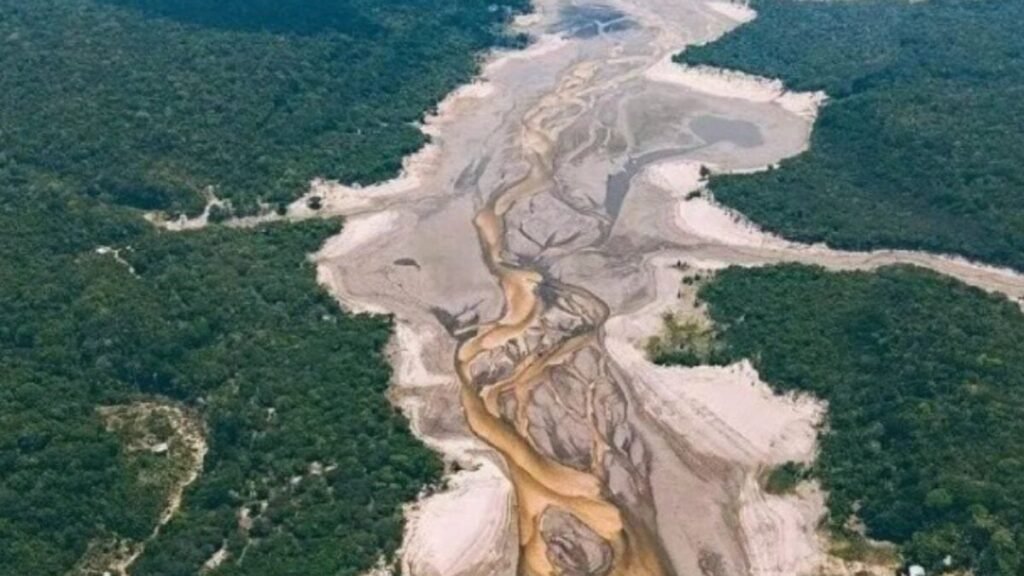The Amazon under threat: historic drought jeopardizes the rainforest due to changes in the Atlantic

The Amazon rainforest, one of the planet’s largest biodiversity sanctuaries, is facing an unexpected threat: a historic drought. The issue does not originate from within the forest, but from the Atlantic ocean currents. Researchers from Brazil, Germany, and Switzerland have found that the AMOC —key to distributing heat and nutrients between hemispheres— is weakening to unprecedented levels, potentially shifting tropical rains and drying out a large portion of the biome.
### The AMOC, a silent climate driver
The AMOC operates like a giant oceanic conveyor belt. Over the past 6500 years, this system remained stable, with an average flow of 18 Sverdrups (equivalent to one billion liters per second). However, global warming and Arctic ice melt are reducing its intensity, with global consequences.
Evidence from the seabed
The international team analyzed data to measure thorium-230 and protactinium-231 isotopes. These ratios act as “chemical fingerprints” of oceanic circulation status. Using climate models from the University of Bern, the data confirmed that the AMOC is undergoing an unprecedented weakening process in the Holocene.
Impact on the Amazon
The northern Amazon would bear the brunt. Equatorial rains, shifted southward, would drastically reduce moisture in this area, favoring the replacement of wet forests with drier vegetation. Previous studies have shown that similar episodes in the past caused significant disruptions.
A looming global risk
The effects would not be limited to South America: AMOC weakening would also alter monsoons in Asia and Africa, changing water availability for millions of people. According to Cristiano Mazur Chiessi (USP), “this climate change imposes an unprecedented vulnerability in the heart of the Amazon, an area that has so far served as a biodiversity refuge.”
A call to action
Despite direct monitoring of the AMOC only starting in 2004, the signs are clear. Scientists warn of a possible point of no return. COP-30, scheduled for November in Belém (Pará), emerges as a crucial meeting for urgent and coordinated decisions.
Source: [link]






